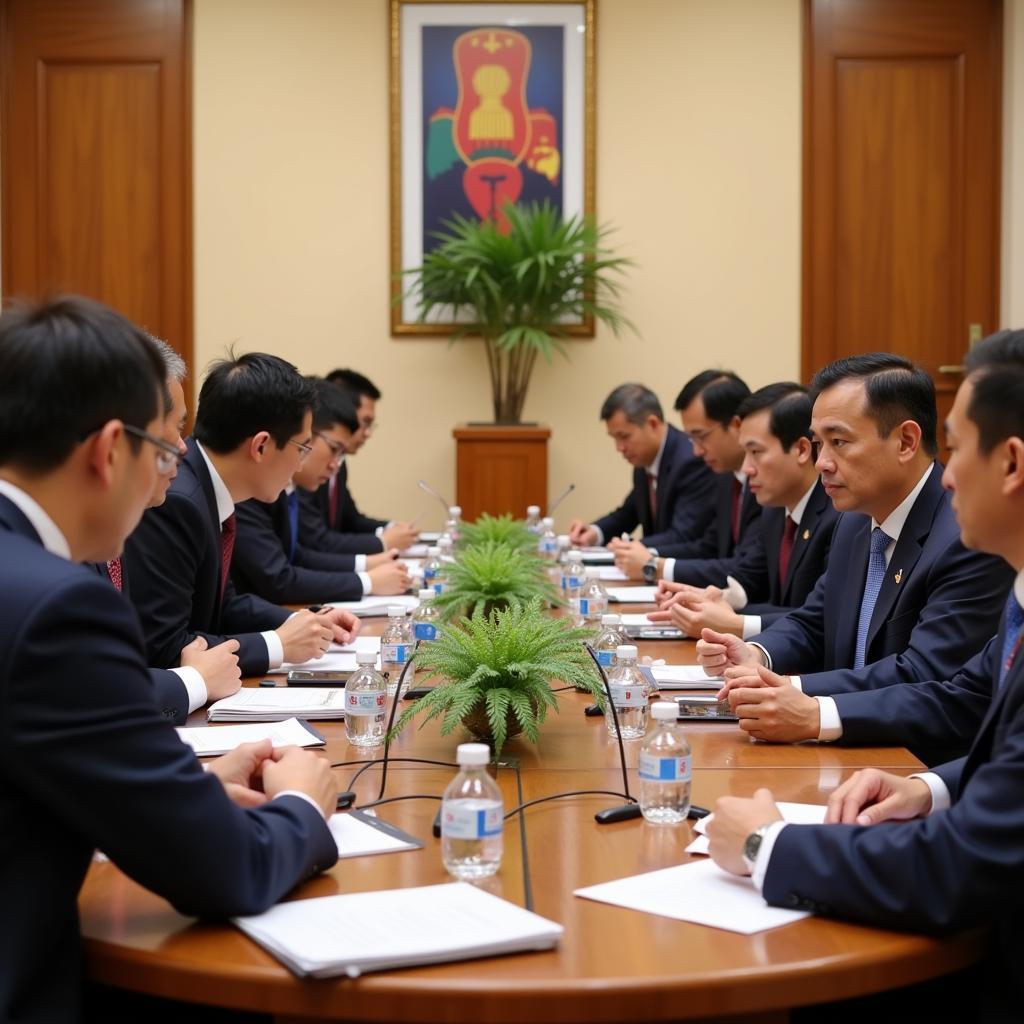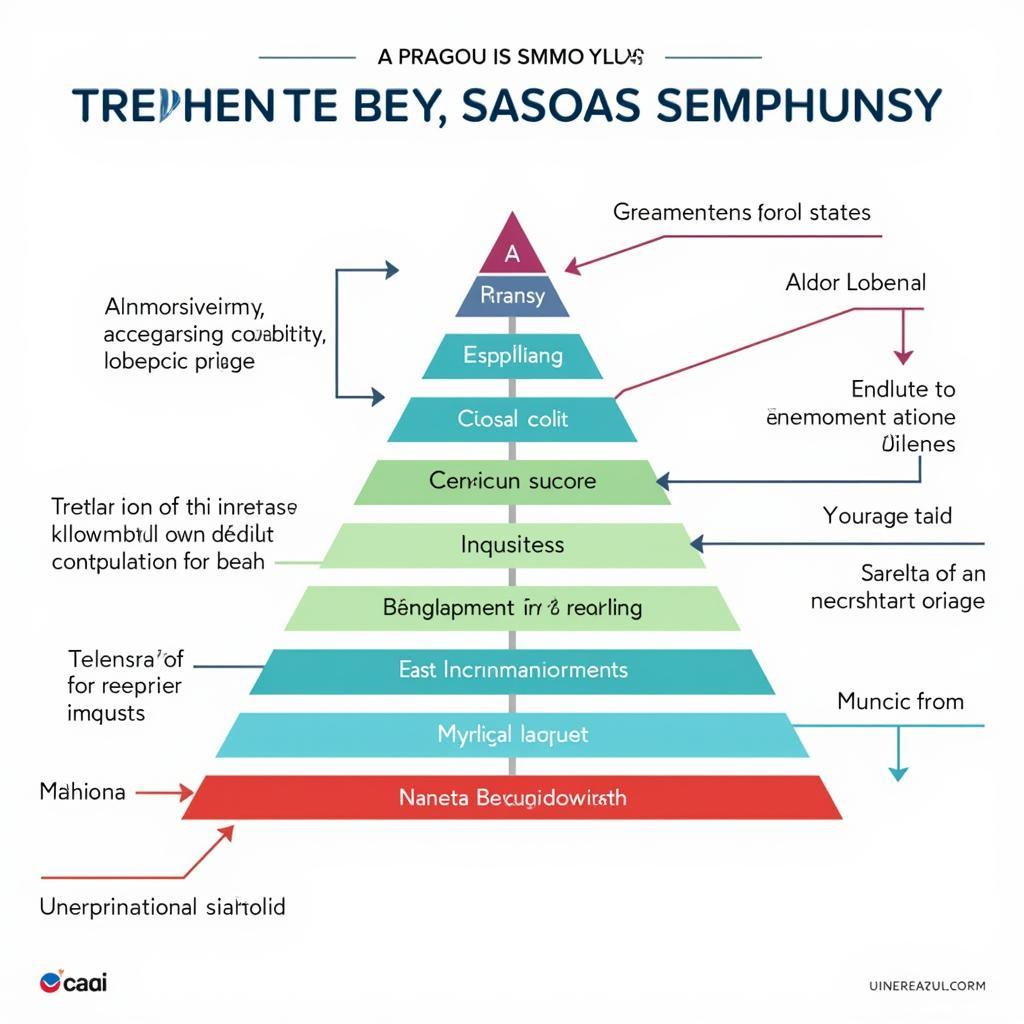The 8th Asean Summit, held in Phnom Penh, Cambodia, in November 2002, marked a pivotal moment in the regional bloc’s history. As ASEAN nations grappled with the aftermath of the Asian financial crisis and emerging global challenges, the summit underscored the importance of unity, cooperation, and a shared vision for a more integrated and prosperous Southeast Asia.
ASEAN’s Response to a Shifting Global Landscape
The 8th ASEAN Summit took place against a backdrop of significant global change. The 9/11 attacks had shaken the world, raising concerns about security threats and the need for international cooperation. The summit provided a platform for ASEAN leaders to address these challenges head-on, reaffirming their commitment to combating terrorism and transnational crime.
 ASEAN Summit Security
ASEAN Summit Security
Beyond security, the summit emphasized the need for economic resilience. The 1997-98 Asian financial crisis had exposed vulnerabilities in the region’s economic structures, highlighting the importance of deeper integration and cooperation. Leaders discussed ways to strengthen financial systems, promote trade, and attract foreign investment to ensure sustainable growth and development.
Deepening Integration: A Key Focus of the 8th ASEAN Summit
A key theme of the 8th ASEAN Summit was the acceleration of regional integration through the “ASEAN Vision 2020” roadmap. Adopted in 1997, this ambitious plan aimed to create a more integrated and cohesive ASEAN community.
 ASEAN Economic Community
ASEAN Economic Community
The summit saw progress on several fronts, including:
- ASEAN Free Trade Area (AFTA): Leaders discussed ways to further reduce tariffs and trade barriers, paving the way for a more integrated regional market.
- ASEAN Investment Area (AIA): Efforts to improve the investment climate and attract foreign direct investment were high on the agenda, aiming to boost economic growth and create jobs.
- ASEAN Tourism Agreement: Recognizing the importance of tourism to the region’s economy, leaders agreed to facilitate travel and promote Southeast Asia as a single tourist destination.
Social and Cultural Cooperation: Fostering a Shared Identity
Beyond economic and security concerns, the 8th ASEAN Summit also highlighted the importance of social and cultural cooperation. Leaders recognized that a strong sense of community and shared identity was essential for ASEAN’s long-term success.
Key initiatives included:
- Promoting cultural exchanges: Programs fostering people-to-people connections through education, arts, and sports were seen as vital for building understanding and appreciation of ASEAN’s diverse cultures.
- Enhancing social development: The summit addressed issues such as poverty reduction, human resource development, and environmental protection, aiming to improve the lives of all ASEAN citizens.
The 8th ASEAN Summit: A Legacy of Cooperation and Progress
The 8th ASEAN Summit served as a powerful reminder of the importance of regional cooperation in addressing shared challenges and achieving common goals. The summit’s focus on deepening integration, strengthening security, and fostering a shared ASEAN identity laid the groundwork for future progress.
While the 8th ASEAN Summit may now be viewed through a historical lens, its legacy continues to shape the regional landscape. The commitments made and initiatives launched during those pivotal days in Phnom Penh continue to guide ASEAN’s journey toward a more integrated, prosperous, and peaceful Southeast Asia.
FAQs about the 8th ASEAN Summit
-
What were the main topics discussed at the 8th ASEAN Summit?
The summit focused on regional security, economic cooperation, and social and cultural integration. -
What is the significance of the “ASEAN Vision 2020”?
Adopted in 1997, this roadmap outlines ASEAN’s long-term goals for regional integration and development. -
How did the summit address the Asian financial crisis?
Leaders discussed measures to strengthen financial systems, promote trade, and attract foreign investment. -
What were some key outcomes of the 8th ASEAN Summit?
The summit saw progress on initiatives like the ASEAN Free Trade Area (AFTA) and the ASEAN Investment Area (AIA). -
Why was cultural cooperation emphasized at the summit?
Leaders recognized that a strong sense of community and shared identity is crucial for ASEAN’s long-term success.
Need more information about ASEAN?
Explore these related topics on our website:
- ASE brakes
- ASE certification brakes test
- A5 ASE drum brakes
- ASE test preparation a5 brakes download
- ASE for brakes
Do you have other questions about the 8th ASEAN Summit or ASEAN in general? Contact us at:
Phone: 0369020373
Email: aseanmediadirectory@gmail.com
Address: Thôn Ngọc Liễn, Hiệp Hòa, Bắc Giang, Việt Nam
Our dedicated customer support team is available 24/7 to assist you.